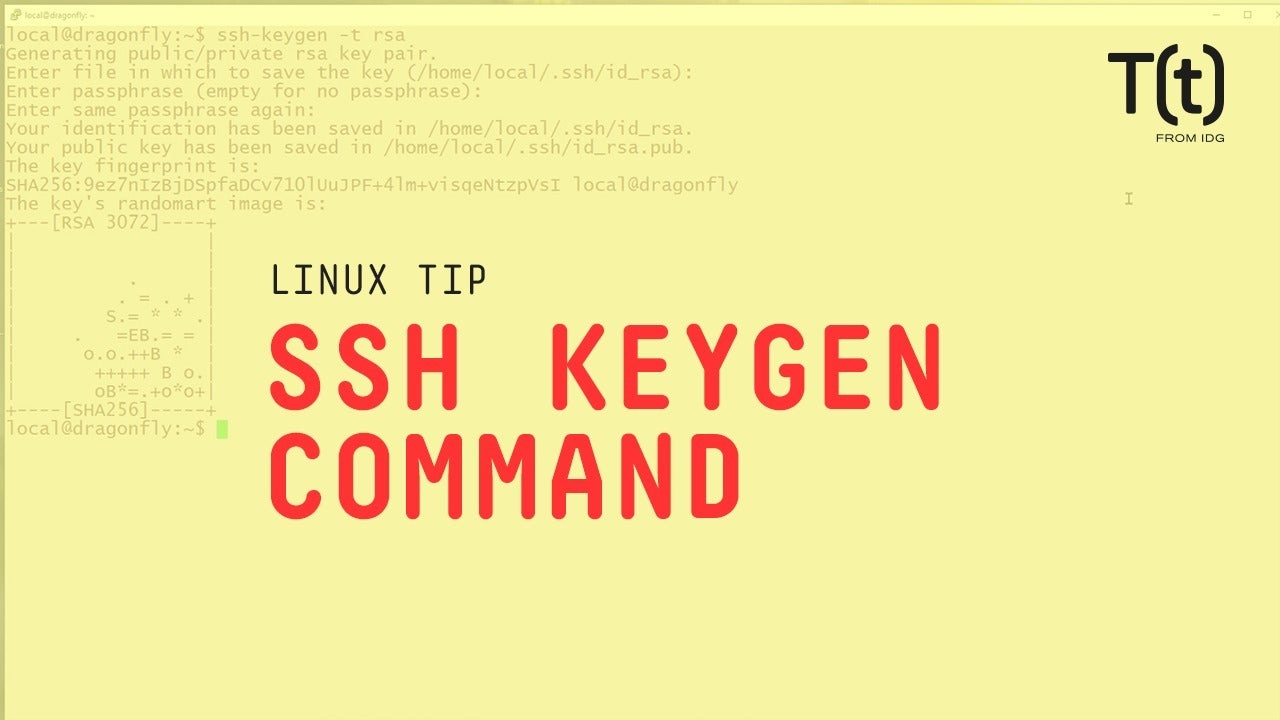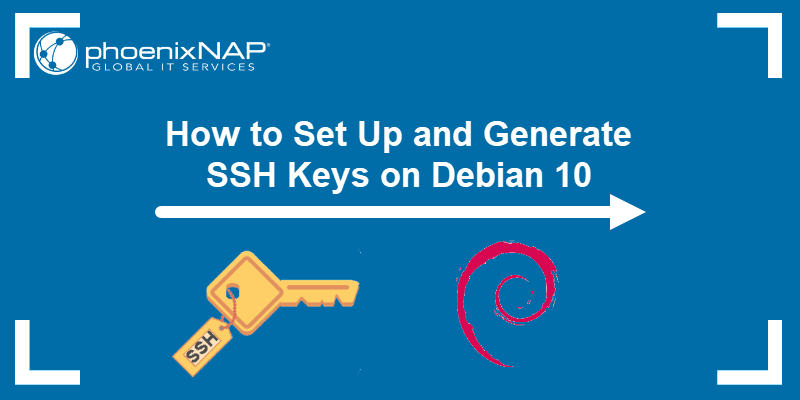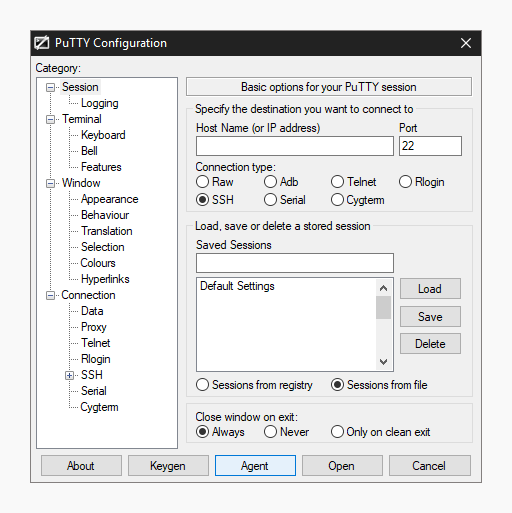
- Linux ssh keygen command how to#
- Linux ssh keygen command password#
- Linux ssh keygen command series#
- Linux ssh keygen command windows#
SHA256:vFfHHrpSGQBd/oNdvNiX0sG9Vh+wROlZBktNZw9AUjA key's randomart image is:Įnter file in which to save the key (/home/azureuser/.ssh/id_rsa): ~/.ssh/id_rsa Your public key has been saved in /home/azureuser/.ssh/id_rsa.pub. Your identification has been saved in /home/azureuser/.ssh/id_rsa. Example of ssh-keygen ssh-keygen -t rsa -m PEM -b 4096 -C public/private rsa key pair.Įnter file in which to save the key (/home/azureuser/.ssh/id_rsa):Įnter passphrase (empty for no passphrase): N mypassphrase = an additional passphrase used to access the private key file. A corresponding public key file appended with. f ~/.ssh/mykeys/myprivatekey = the filename of the private key file, if you choose not to use the default name. Normally an email address is used as the comment, but use whatever works best for your infrastructure. C = a comment appended to the end of the public key file to easily identify it. b 4096 = the number of bits in the key, in this case 4096 t rsa = type of key to create, in this case in the RSA format Ssh-keygen = the program used to create the keys If an SSH key pair exists in the current location, those files are overwritten. The following example shows additional command options to create an SSH RSA key pair. The following ssh-keygen command generates 4096-bit SSH RSA public and private key files by default in the ~/.ssh directory. You can also create keys with the Azure CLI with the az sshkey create command, as described in Generate and store SSH keys. An SSH key is created as a resource and stored in Azure for later use.


If you do not have a ~/.ssh directory, the ssh-keygen command creates it for you with the correct permissions. SSH keys are by default kept in the ~/.ssh directory.
Linux ssh keygen command series#
ssh-keygen asks a series of questions and then writes a private key and a matching public key.
Linux ssh keygen command windows#
To create the keys, a preferred command is ssh-keygen, which is available with OpenSSH utilities in the Azure Cloud Shell, a macOS or Linux host, and Windows 10.
Linux ssh keygen command password#
However, you still need to manage your passwords for each Linux VM and maintain healthy password policies and practices, such as minimum password length and regular updates. If your VM is not exposed to the Internet, using passwords may be sufficient. If you do not wish to use SSH keys, you can set up your Linux VM to use password authentication. By creating an Azure Linux VM with SSH keys, you can help secure the VM deployment and save yourself the typical post-deployment configuration step of disabling passwords in the sshd_config file. In an Azure Linux VM that uses SSH keys for authentication, Azure configures the SSHD server to not allow password sign-in, only SSH keys. SSH keys in ~/.ssh/authorized_keys are used to challenge the client to match the corresponding private key on an SSH connection. pub format) to the ~/.ssh/authorized_keys folder on the VM. When you create an Azure VM by specifying the public key, Azure copies the public key (in the. Other key formats such as ED25519 and ECDSA are not supported. Supported SSH key formatsĪzure currently supports SSH protocol 2 (SSH-2) RSA public-private key pairs with a minimum length of 2048 bits. Your public key can be shared with anyone, but only you (or your local security infrastructure) should have access to your private key. You do not need a separate pair of keys for each VM or service you wish to access. If the client has the private key, it's granted access to the VM.ĭepending on your organization's security policies, you can reuse a single public-private key pair to access multiple Azure VMs and services.

When you use an SSH client to connect to your Linux VM (which has the public key), the remote VM tests the client to make sure it has the correct private key. The private key remains on your local system. The public key is placed on your Linux VM. We recommend connecting to a VM over SSH using a public-private key pair, also known as SSH keys. Although SSH provides an encrypted connection, using passwords with SSH connections still leaves the VM vulnerable to brute-force attacks. SSH is the default connection protocol for Linux VMs hosted in Azure. SSH is an encrypted connection protocol that provides secure sign-ins over unsecured connections. You can also use the Azure portal to create and manage SSH keys for creating VMs in the portal.
Linux ssh keygen command how to#
To create SSH keys and use them to connect to a Linux VM from a Windows computer, see How to use SSH keys with Windows on Azure. If you want quick commands, see How to create an SSH public-private key pair for Linux VMs in Azure. This article shows you how to create and use an SSH RSA public-private key file pair for SSH client connections. With a secure shell (SSH) key pair, you can create a Linux virtual machine that uses SSH keys for authentication. Applies to: ✔️ Linux VMs ✔️ Flexible scale sets


 0 kommentar(er)
0 kommentar(er)
